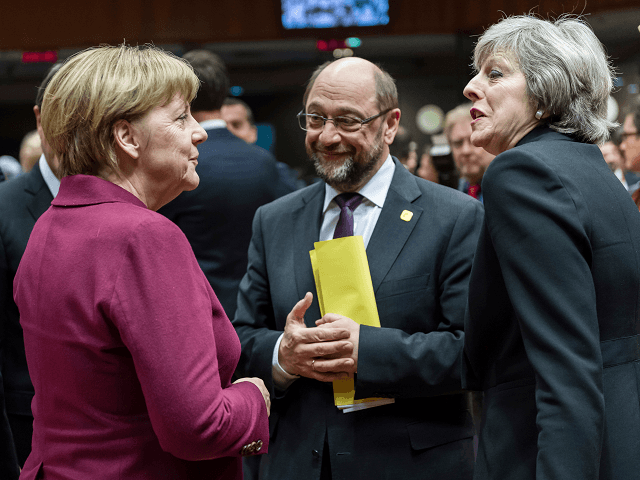As Germany approaches the next Federal election in September, former European Parliament President Martin Schulz has been selected to stand for the Social Democrats, and run against centre-right Chancellor Angela Merkel.
In explaining his decision to not contest the election again, Social Democratic Party (SPD) leader and present German Vice-Chancellor Sigmar Gabriel said apparently without irony, that “Schulz stands for a new beginning. And that’s what it’s all about in a Bundestag election”, reports the Financial Times.
Martin Schulz is a veteran political operator, having spent more than twenty years as a member of the European Parliament and five years as its president, and has been a key figure in the cause of European integration.
Despite being a domestic name across Europe and having decades of political campaigning behind him, Mr. Schulz has never been a German member of parliament, and his party is trailing a dozen points behind Mrs. Merkel’s Christian Democrats (CDU).
Merkel is now running for her fourth term as Chancellor and despite falling poll ratings and insurgent populist parties such as the Alternative for Germany (AfD) making progress, she still looks near-certain to enjoy another victory. In leading the SPD in September’s vote, Schulz could be accepting a poisoned chalice of near-certain defeat.
Germany has been ruled by a grand coalition of both the CDU and SPD since 2013, a common facet of European governance where one political party is rarely powerful enough to form a government alone. With this in mind, Schulz hopes to capitalise on Merkel’s declining support in her own natural constituency of centre-right voters over her migrant crisis record.
Politico.eu reports an ambition to ‘unite the left”, and to potentially lead a Red-Green-Red coalition to block Merkel from power. This strategy has already worked in a number of German state and city legislatures, where left-rainbow coalitions of smaller parties have kept larger right-wing but otherwise isolated movements out of power.
A Schulz leadership in Berlin could be bad news for the United Kingdom as it works to negotiate a good deal for Brexit. An arch-Europhile, Mr. Schulz’s comments on Brexit since the referendum have not always been charitable, and The Times reports he could herald a “harder time” for negotiations.
Follow Oliver Lane on Twitter: Follow @Oliver_Lane or e-mail to: olane@breitbart.com

COMMENTS
Please let us know if you're having issues with commenting.